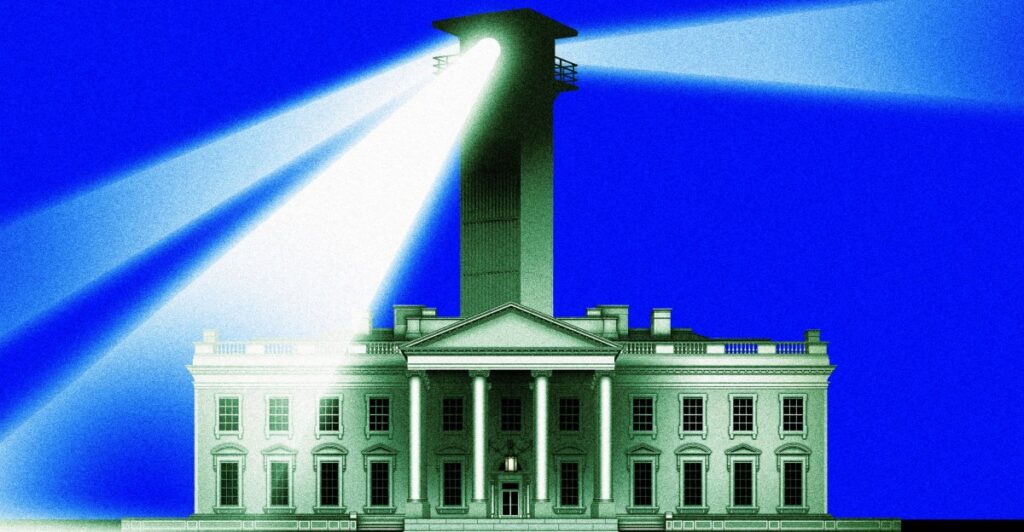
The Trump administration’s heightened monitoring of immigrants’ social media accounts seeking grounds to revoke their visas stifles the speech rights of both noncitizens and citizens alike, the Electronic Frontier Foundation (EFF) alleges in a new lawsuit.
The EFF filed the lawsuit on behalf of labor unions including the United Automobile Workers, Communications Workers of America, and American Federation of Teachers, whose members include immigrants who could be subject to the visa revocation program. It claims that the policy effectively chills speech by encouraging individuals to self-censor to avoid being booted from the country.
“Many of Plaintiffs’ members no longer express views remotely related to the topics the government disfavors, especially online where the government is watching,” the complaint says. Some members have also limited their engagement with the unions themselves, it says, fearing retribution for public union activity. That chilling effect can extend to US citizens in some circumstances, EFF senior staff attorney Sophia Cope says, like if they’re in a relationship with a visaholder who they fear could be punished for their own remarks online.
“We are not going to be importing activists into the United States”
Secretary of State Marco Rubio asserted in March that the US has the ability to revoke visas for many reasons, just like they can decide whether to grant them. He told reporters the agency wasn’t going after people “complaining about paper straws,” but insisted it has the right to deny visas for students whose activities are “supportive of movements that run counter to the foreign policy of the United States,” a category that’s included pro-Palestinian protest. “We are not going to be importing activists into the United States,” he said, based on a transcript released by the State Department. “They’re here to study. They’re here to go to class. They’re not here to lead activist movements that are disruptive and undermine the – our universities. I think it’s lunacy to continue to allow that.” Rubio called visas “a gift” and added, “no one is entitled to a visa.”
This rationale already raised serious First Amendment concerns for groups like EFF, but recently, the visa revocation standards have become even broader. On Tuesday, the State Department shared that it had revoked visas for immigrants who posted negative comments about right-wing activist Charlie Kirk after he was killed at a public event, continuing a wave of speech crackdowns by conservatives. The complaint includes the X thread the State Department posted about the revocations, calling it “an extraordinary admission of what the administration is doing.”
Cope says constitutional protections apply to people in the US regardless of citizenship status. “Our argument is that if you are here, just like you’re subject to due process under the Fifth Amendment, you are subject to First Amendment protections under the First Amendment,” she says.
“If we’re a country that values free speech, then we should value it for everyone who’s here,” Cope says. “Otherwise, it doesn’t really mean very much.”
